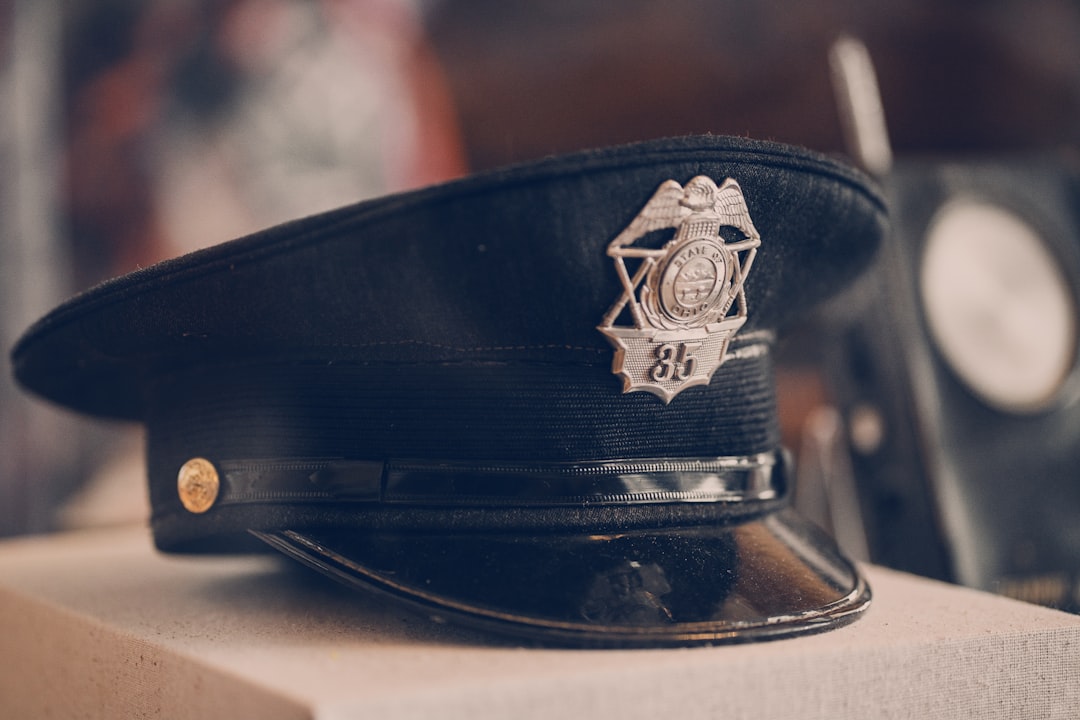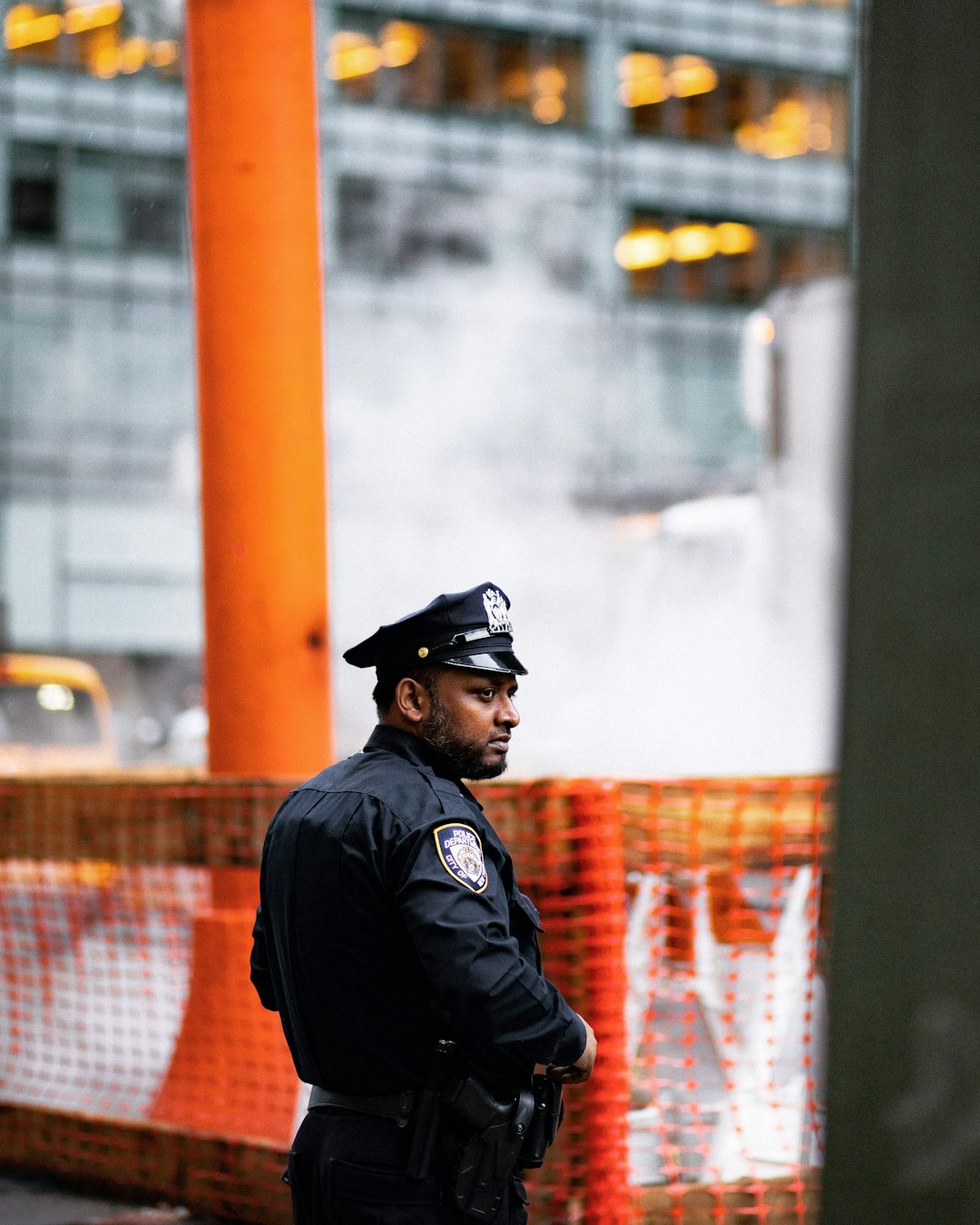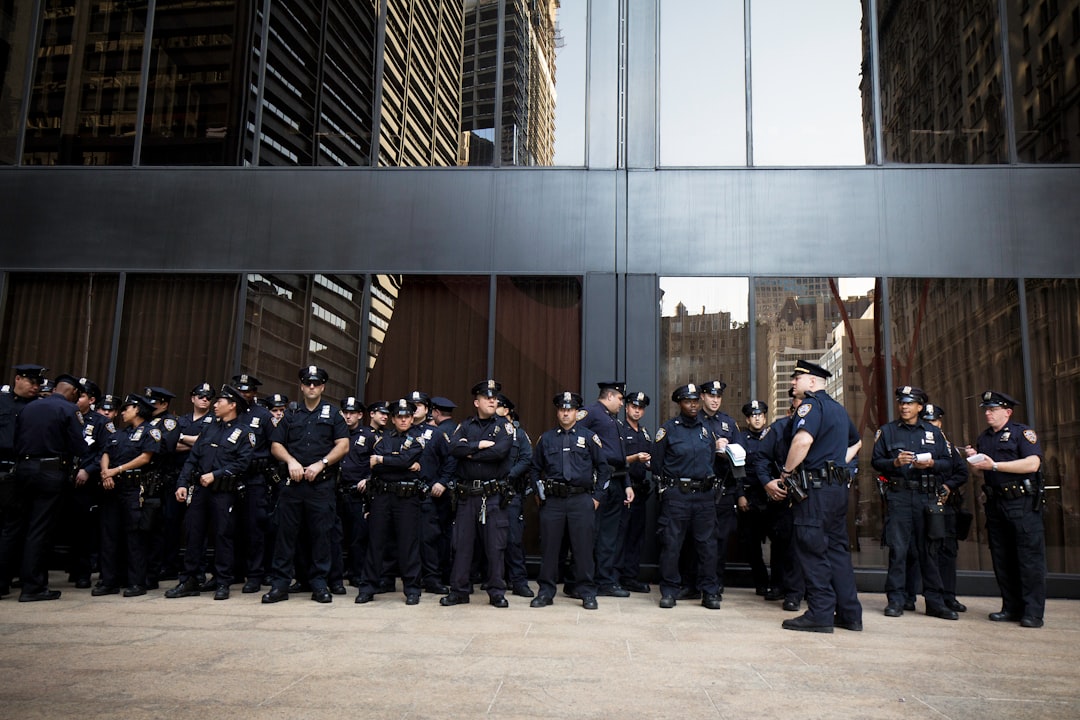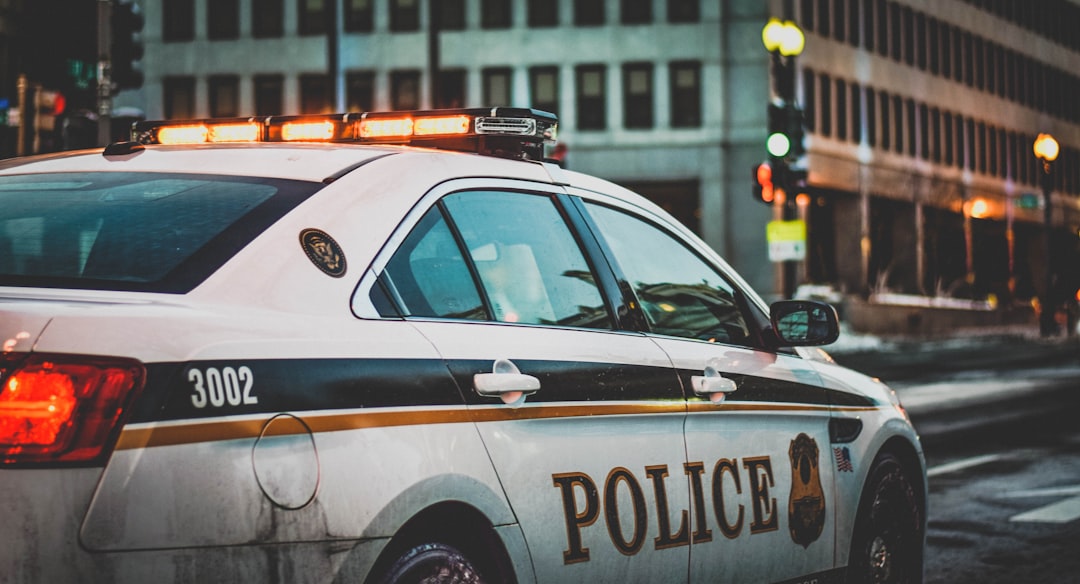
Choosing a career in law enforcement is a commendable decision, one that comes with great responsibility, dedication, and a commitment to serve the community.
Becoming a police officer requires meticulous preparation, rigorous training, and an unwavering resolve to uphold the law.
This step-by-step guide aims to provide comprehensive information on how to transition from a law enforcement aspirant to a fully-fledged police officer.
It offers a detailed walk-through of the process, prerequisites, and challenges you may encounter along the way, preparing you for a rewarding career in law enforcement.
Articles You Might Like:
- How Long Does it Take to Become a Police Officer
- Requirements to Become a Police Officer
- How Long is The Police Academy
Police Officers: High Standards To Meet
Becoming a police officer isn’t merely about meeting the minimum qualifications. It’s about embodying the standards of integrity, discipline, and commitment that the role demands.
As the front line of law enforcement, police officers are expected to uphold the law while demonstrating exceptional ethical conduct and community service.
Police departments look for candidates who not only possess the physical and mental stamina necessary for the job but also demonstrate a strong moral compass.
A clean legal record, good credit score, and a history of responsible behavior are all crucial components of a potential candidate’s profile.
This is why the hiring process for police officers involves comprehensive background checks and rigorous testing procedures.
Steps To Becoming a Police Officer
Becoming a police officer requires a combination of education, training, and meeting certain eligibility requirements.
The process can vary depending on the specific police department and the state, but here are the general steps and the estimated time it takes:
1. Successfully Pass a Background Check
Criminal history and credit scores considered
The first step in the journey to becoming a police officer involves passing a thorough background check. This includes an assessment of your criminal history and credit score.
Departments are looking for individuals who have demonstrated responsibility and integrity in their personal lives.
A criminal record, particularly for serious offenses, can disqualify a candidate. Similarly, a poor credit score might suggest financial irresponsibility, which could be a red flag for hiring departments.
However, minor infractions or past financial difficulties may be overlooked depending on the circumstances and how long ago they occurred.
Other Aspects of The Hiring Process
In addition to the background check, prospective officers must also pass a series of physical fitness tests, a written examination, and a psychological evaluation. Some departments may require candidates to undergo a polygraph test.
The physical fitness test measures strength, endurance, and agility, while the written exam assesses comprehension, recall, and the ability to make sound decisions under pressure.
The psychological evaluation, handled by a licensed psychologist, helps ensure that candidates are mentally prepared for the demands of the job.
All these steps are designed to ensure that police departments recruit individuals who are fit, capable, and ready to handle the challenges of a career in law enforcement.
Each step of the process is crucial, requiring dedication, preparation, and unwavering commitment.
This guide offers an in-depth understanding of what it takes to become a police officer, providing aspirants with a roadmap to navigate their path towards wearing the badge with pride.
2. Acquire a Degree or Academy Training
Some states require a high school diploma or GED
The educational requirements for becoming a police officer vary from state to state. However, at the very least, most police departments require candidates to have a high school diploma or GED.
This ensures that prospective officers have a basic level of education, which is necessary for understanding the complexities of law enforcement and performing duties like report writing and evidence analysis.
Some Prospective Police officers Benefit From Military Experience
Military experience can be beneficial for those seeking a career in law enforcement. The discipline, physical fitness, and leadership skills gained in the military often translate well to the demands of police work. In some cases, police departments may give preference to veterans or those with active military service.
Patrol, Traffic Control, Firearm Use and Self-defense
Police academy training is a crucial part of the process where candidates learn essential skills such as patrol procedures, traffic control, firearm use, and self-defense.
The training also covers legal education, community relations, and emergency response. This hands-on, practical training prepares future officers for the realities of the job and reinforces classroom learning.
An Associate’s Degree is a Plus
While not always a requirement, having an associate’s degree or higher can give candidates an edge.
Degrees in criminal justice, law enforcement, or a related field provide a strong foundation of knowledge that can be beneficial in a policing career.
Having a degree could also open up opportunities for advancement down the line.
3. Pass The Licensing Exam
After completing their education and training, prospective police officers must pass a state licensing exam.
This exam tests the candidate’s knowledge of local, state, and federal laws, as well as their understanding of ethical standards and practices in law enforcement.
Passing this exam is a critical step, as it officially certifies the candidate as a qualified law enforcement officer.
What The POST Exam Covers
The POST (Peace Officer Standards and Training) exam is a comprehensive test that evaluates a candidate’s aptitude for law enforcement work. It covers several key areas:
–Writing Skills: This section tests a candidate’s grammar, punctuation, spelling, and writing clarity. These skills are important as officers often have to write reports that should be clear and concise.
-Reading Comprehension: This part assesses the ability to understand written information, which is crucial for understanding laws, regulations, and instructions.
–Reasoning Ability: This includes both deductive and inductive reasoning tests. Deductive reasoning involves applying general rules to specific problems to come up with logical answers, while inductive reasoning involves combining pieces of information to form general rules or conclusions.
–Memory Recognition: Given the nature of police work, officers must be able to accurately remember details of events and identify individuals or objects based on those details.
–Directional Orientation: Officers must be able to use maps and understand directional information to navigate their way around their assigned areas.
The specific content and structure of the POST exam can vary by state, as each state’s POST organization may have different standards and requirements.
It’s always best to check with your local law enforcement agency or POST organization for the most accurate information about the POST exam in your area.
4. Undergo Psychological Evaluation
A career in law enforcement can be emotionally demanding and psychologically taxing. This is why all prospective police officers must undergo a comprehensive psychological evaluation.
This assessment, conducted by a licensed psychologist, is designed to gauge a candidate’s mental and emotional stability, stress tolerance, and ability to deal with the complexities of police work.
The psychological evaluation typically includes both written tests and a one-on-one interview. It assesses various aspects of an individual’s personality, mental health history, and personal background to determine their suitability for the job.
Importance of The Polygraph Test
In addition to the psychological evaluation, some police departments also require candidates to take a polygraph test or lie detector test.
This is used to verify the truthfulness of the information provided by the candidate during the application process.
The polygraph test measures physiological responses such as heart rate, blood pressure, and sweat gland activity while the candidate answers a series of questions.
It’s a tool used to ensure honesty and integrity, key traits necessary for a career in law enforcement.
It’s important to note, however, that not all departments require a polygraph test, and its results are typically used in conjunction with other evaluation methods.
5. Continuing Education And Potential Career Advancement
Even after earning their badge, police officers’ learning journey doesn’t end. In fact, continuing education is a crucial aspect of a law enforcement career.
It helps officers stay updated with the latest developments in law enforcement techniques, changes in laws and regulations, and advancements in technology.
Many police departments encourage, and in some cases require, their officers to engage in ongoing training and education throughout their careers.
This can take the form of in-service training programs, workshops, seminars, or even pursuing further formal education like bachelor’s or master’s degrees in related fields.
Specialized Training
Specialized training can also be part of an officer’s continuing education. These might include courses in homicide investigation, drug enforcement, juvenile justice, or traffic accident reconstruction.
Such training not only enhances an officer’s skills but can also open up opportunities for advancement within the department.
For instance, an officer might choose to specialize in a particular area like forensic science or cybercrime. This could lead to a role as a detective or investigator in that specialty.
Similarly, officers who pursue leadership training might move up the ranks to become sergeants, lieutenants, or even police chiefs.
Is Becoming a Police Officer in Your Future?
If you’re considering a career that allows you to serve your community, make a real difference, and face new challenges each day, then becoming a police officer could be the right choice for you. It’s not an easy path, but it’s one of the most rewarding and fulfilling careers there is.
Remember, being a police officer is more than just a job. It’s a commitment to uphold the law, protect the innocent, and ensure justice is served.
It requires physical strength, mental resilience, and a strong moral compass. If these traits resonate with you, then a career in law enforcement could be in your future.
Earn a Law Enforcement Degree
While it’s not always mandatory, earning a law enforcement or criminal justice degree can provide a solid foundation for a career in policing.
An associate’s or bachelor’s degree can offer a deeper understanding of the legal system, criminology, forensic science, and police administration.
Besides providing theoretical knowledge, a degree in law enforcement can also improve your chances of advancement within the department.
Final Thoughts
In conclusion, becoming a police officer involves fulfilling stringent requirements and undergoing rigorous training.
However, the reward is a career that offers the opportunity to make a significant difference in your community.
With continuous learning and specialization, there’s also the potential for growth and advancement in this dynamic field.
FAQs
Q: How long does it take to become a police officer?
A: The length of time it takes to become a police officer varies based on factors such as education, academy training, and the hiring process. Generally, it can take anywhere from six months to several years.
Q: Can I become a police officer with a criminal record?
A: While having a criminal record does not automatically disqualify you from becoming a police officer, certain types of convictions, such as felonies or serious misdemeanors, may make it difficult to be hired in law enforcement.
Q: What are the physical fitness requirements for becoming a police officer?
A: Physical fitness requirements vary by department but typically include tests of strength, endurance, and agility. Regular exercise and maintaining a healthy lifestyle can help prepare you for these tests.
Q: Do I need a college degree to become a police officer?
A: While a college degree is not always required, having one can improve your chances of being hired and may lead to higher starting salaries or faster promotions. Some departments may require or prefer applicants with degrees in fields such as criminal justice or law enforcement.
In conclusion, becoming a police officer requires dedication, perseverance, and a commitment to maintaining high ethical standards. By following the steps outlined in this article and meeting the necessary requirements, you can pursue a rewarding career in law enforcement.
How much does the police academy cost?
If you are sponsoring yourself to the police academy, the cost varies by state, however expect to spend in the neighborhood of 4k-6k.
how long does it take to become a police officer?
Expect the selection process to take up to 4-6 months at the low end to as much as two years for bigger agencies. The length varies by department.
how to join the police academy?
There are usually two ways to join the police academy. You can sponsor yourself to the academy, which can be quite costly, or you can have a local agency sponsor you.
what do police officers do?
Police officers do a variety of things during their shift, and some of which are report writing, responding to calls, patrolling high crime areas, securing crime scenes, doing follow-ups and more.
do you need a degree to be a cop?
In many states and cities the answer is no. However there are some agencies that require at least a 2 year degree.
police officer education requirements?
Police officers need to possess a high school diploma, and/or a GED to become a police officer
how long is the police academy?
Expect your training to last around 16-22 weeks
What are the requirements to become a police officer?
- you must be a U.S. Citizen
- you must be at least 21
- you must have a high school diploma
- you must have a valid driver’s license
- you must have good moral character
- you must not have any felony convictions







